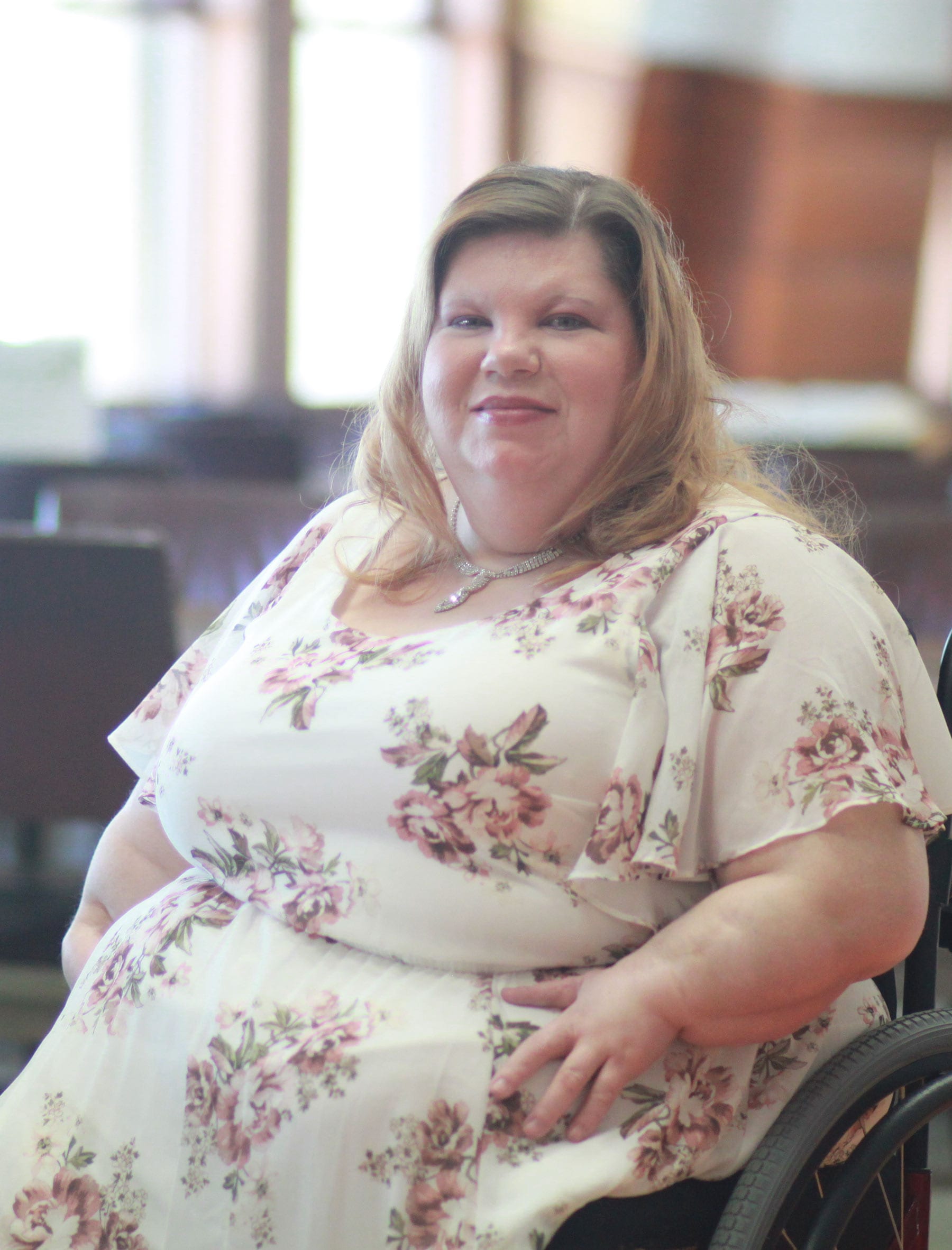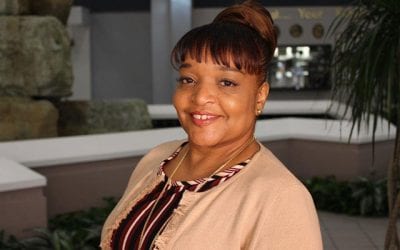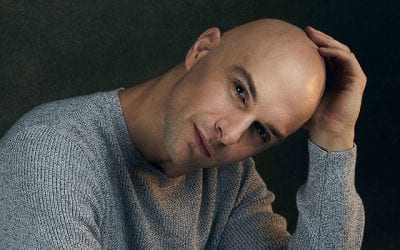Ready, Willing & Able
ONE ROOSEVELT ALUMNA'S FIGHT FOR PEOPLE WITH DISABILITIES IN HIGHER EDUCATIONby JULIAN ZENG
“Don’t judge a book by its cover” is just about the most tried and true adage that exists. Its ubiquity is unparalleled, yet its lesson is one we humans continuously let lapse in our collective minds. What lies at surface level is often as far as we’re willing to look.

For a day in October 2017, attendees of the Ms. Wheelchair Illinois contest were reminded of the beauty in people when judged by their full character.
The annual pageant, held at the ComEd Commercial Center in Oakbrook, Illinois, is a celebration of a select group of women with a range of disabilities. The pageant is based on advocacy, achievement, communication and presentation to select the most accomplished and articulate spokeswoman for persons with disabilities. The selected representative must be able to communicate both the needs and accomplishments of her constituency to the general public, the business community and legislature.
And you’d be forgiven for being surprised by this year’s winner — her registration for the contest was a somewhat spur-of-the-moment decision, capping a tumultuous summer.
Mary Mocny graduated from Roosevelt University’s clinical psychology master’s program in May 2017 and planned to take the National Counselor Examination for Licensure and Certification (NCE) shortly after. Yet while preparing for the exam, Mocny underwent an emergency gall bladder removal, after which a “rough recovery” prohibited her from getting back to studying.
Mocny, 35, was born with multiple congenital deformities, an umbrella under which she doesn’t fit into any of its 70 sub-categories. She is a double-leg amputee and spent a considerable amount of time at Shriners Hospital for Children in Chicago, where she had 12 surgeries before the age of 3.
After eventually recuperating from her procedure, Mocny traveled to Chelmsford in England to visit a friend for two weeks, marking the first time she had ever been out of the country on her own. Upon returning from the trip, Mocny decided to register for Ms. Wheelchair.
“The closer the deadline came, I just decided to send in my application and see what happens,” Mocny said. “It was kind of a spontaneous summer.”
Mocny was later accepted into the pageant, for which all contestants are required to write and memorize a two-minute platform addressing a specific topic. Judges spend time with each contestant, getting to know them and understanding their platform.
“No bathing suit contest,” Mocny said, laughing. “[The judges are] looking for a well-balanced spokesperson, someone with the skills and capabilities to continue advocating for your platform. It’s more about your inner beauty — how you’ve contributed to the community and what goals you’ve met in your personal life.”
Mocny’s platform was for greater access to higher education for people with disabilities. She was inspired by talking with friends of hers with disabilities, many of whom were intimidated by the college experience because they were unsure of accessibility factors.
“Be able to explain whatever you’re scared of. Explain your situation and what would make you uncomfortable, so that someone can give you answers or direct you in the right place,”
-Mary Mocny
MS, ’17
“I thought there wasn’t enough promotion or advocacy to encourage people with disabilities so they don’t feel afraid,” Mocny said, citing a need to create brochures or other printed materials showing people using mobility aids or describing various services. “I wanted to see more of that.”
Mocny believes that there needs to be a better bridge connecting high schools and colleges, encouraging juniors and seniors to visit colleges, talk to advisors and “ask those scary questions.”
After transferring to Roosevelt on a friend’s suggestion, Mocny found what she was looking for.
“I loved the staff that I met, I felt very comfortable,” Mocny said. “I said, ‘I can see me being here and continuing my education.’”
Roosevelt’s Academic Success Center, located on the 10th floor of the Auditorium Building, played a big part helping Mocny feel welcome and providing necessary services to help her academically and personally.
“I was so excited first looking at the different classes and things I’d be learning. Once I started class, I was impressed with the professors, how they were patient, understanding and so helpful,” Mocny said. “That wasn’t always my experience in secondary education.”
The Academic Success Center provides two branches of resources: Disability Services and Peer Mentoring. Beyond offering base level accommodations such as extra time on exams, quiet areas to study, or scribes for notetaking, the Academic Success Center offers one-on-one case management from its directors and mentors, acting as guidance counselors to ensure students find stability while transitioning into college or continuing their education.
“It’s such a drastic change from high school to college, so much more independent learning has to happen,” said Adam Wouk, director of the Academic Success Center. “It’s a big adjustment that we have to create and support students with, a lot of individualized support.”
According to Wouk, disability offices in college are ones most high school students don’t know exist. Students must legally self-identify as disabled when arriving at college, prohibiting institutions such as Roosevelt from essentially asking who requires necessary accommodations.
Danielle Smith, associate director of the Academic Success Center, calls it a “one-stop shop” for students, due to Roosevelt’s comparably smaller size to other institutions. Beyond meeting standard legal requirements of a disability services office, Roosevelt visits high schools and connects with Chicago Public Schools transition services to give presentations and orient students to what to expect in higher education institutions.
“The odds are stacked against them,” Smith said, referring to students with disabilities. “So, we’re trying to be more visible, going to college fairs and other outside organizations, just getting our name out there.”
Mocny’s path to graduating from Roosevelt was certainly untraditional and quite difficult. After graduating from high school, Mocny worked two jobs until her grandmother became unable to live on her own anymore. Mary then quit working to care for her full-time. Her grandmother wanted to pay her for her time, but Mocny arranged instead for help funding her way through college.
Mocny attended Oakton Community College, earning her associate degree after five years. Now that she’s graduated from Roosevelt with her master’s, she has ramped up studying for the NCE once again, with the goal to begin practice as a licensed counselor.
“Mary is another testament to our mission of graduating students who are grounded in social justice,” said Roosevelt President Ali Malekzadeh.
“I was really impressed with my whole academic experience at Roosevelt,” Mocny said. “The staff and professors are so wonderful, and I learned a lot about myself and the field. Everything that I learned in class, I feel like I actually absorbed. I remember the stories that they’ve shared and why there’s such a value to everything.”
Away from her studies, Mocny spends time with her close-knit family, including her two sisters and brother. Mocny’s father grew up on the same block on which she has lived since she was seven years old — her brother, Brian, lives across the street.
Mocny is the first in her family to go to college and the only one to earn a master’s degree. Her advice to students with disabilities considering pursuing a college degree is to not be afraid of the next big step.
“Be able to explain whatever you’re scared of. Explain your situation and what would make you uncomfortable, so that someone can give you answers or direct you in the right place,” Mocny said. “That was most important for me, talking to professors and advisors and telling them what’s going on in your personal life. I think being able to speak up for yourself is very important.”
Mocny hopes to do just that, taking her platform of higher education accessibility for people with disabilities to the national stage. Having won Ms. Wheelchair Illinois, Mocny moves on to compete in the 2019 Ms. Wheelchair America Pageant, July 30–August 5, 2018 in Grand Rapids, Michigan. In the meantime, she enjoys occupying her time watching The Fosters on Netflix — “probably the most diverse show I’ve ever seen” — and doing arts and crafts, which have “always been a passion of mine.”
Mocny has Roosevelt to thank for finding her voice.
“Roosevelt helped me to be more outspoken, to really have a strong passion and mind for something that I believe in. It’s helped me fight a little harder for people with disabilities,” Mocny said. “There needs to be more of a push, at a time where we’re advocating for lots of different types of people. There’s so much we’re becoming aware of that we didn’t want to talk about 10–20 years ago. Now’s a good time to make that push. People with disabilities can have a job and be successful just as much as anyone else.”
The Ms. Wheelchair America pageant has a People’s Choice Award, created to provide a source of funding for the winning titleholder to travel with her personal care attendant. To vote for nominees, visit the Ms. Wheelchair America website.
More in this section
College of Pharmacy: Valerie Glodowski
A standout in the classroom as part of the College of Pharmacy’s inaugural graduating class, Valerie Glodowski has carried her hard-working spirit and determination into a rising career with CVS.
College of Education: Lynette Stokes
The stigmas most often associated with foster care are neglect, aggression and abuse. But Lynette Stokes is proof that one more qualifier belongs on that list: success.
Chicago College of Performing Arts: Matthew Newlin
World-class lyric tenor and CCPA alumnus Matthew Newlin discusses his international success, and how it all started with the hard work and dedication he put in here at Roosevelt University.



